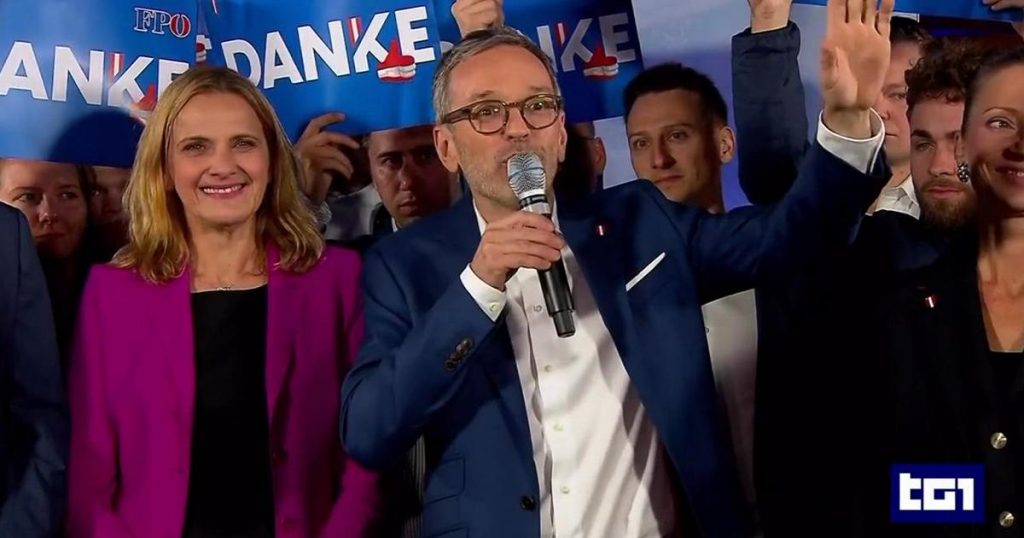After the victory of the far-right FPO in Austria, the formation of the government has become a puzzle. President Alexander Van der Bellen will begin talks with all parties represented in the Nationalrat (National Council) in the coming days. Before the elections, Van der Bellen had stated that if the FPO won, he would not automatically appoint Herbert Kickl, the FPO leader who was removed from his position as Minister of the Interior in 2019 by the then government.
In terms of sheer numbers after the election results, it is possible to see a future cooperation between the FPO and the OeVP (Austrian People’s Party), as well as a potential revival of the old OeVP-SPO (Social Democratic Party) coalition, albeit with very limited numbers. In theory, a three-party variant is also possible, involving the OeVP, SPO, and either Neos or the Greens. Apart from a tripartite option, which would be a novelty in Austria, a coalition between the FPO and the OeVP is also on the table: Chancellor Karl Nehammer had not ruled out collaboration with the far-right during the election campaign, but without its leader.
The situation is complex, as various potential coalitions are being considered, each with its own implications and challenges. The president’s role in these negotiations will be crucial. Van der Bellen will need to navigate the political landscape carefully to ensure a stable and functional government is formed. The final decision on the government formation will have significant consequences for Austria’s future direction and policies.
The possibility of a collaboration between the FPO and the OeVP raises concerns among many, given the far-right’s history and controversial positions. On the other hand, a revival of the OeVP-SPO coalition could offer a more traditionally centrist approach to governance. The inclusion of smaller parties such as Neos or the Greens in a coalition would bring new voices and perspectives into the government, potentially leading to more diverse and inclusive decision-making processes.
Overall, the discussions surrounding the formation of the Austrian government reflect the complex and diverse political landscape in the country. The outcome of these negotiations will shape the future of Austria and have implications for a wide range of issues, from domestic policies to international relations. The president’s efforts to navigate these challenges and reach a consensus among the different parties will be instrumental in determining the direction the country takes in the coming years.


